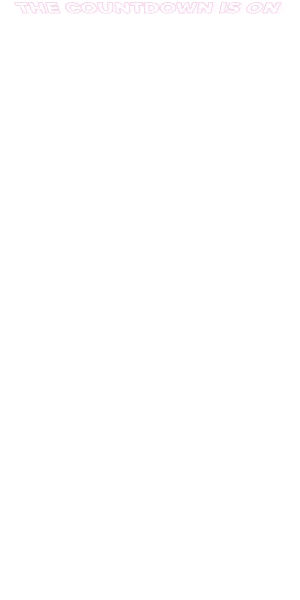Creativity: A key skill for the future
Future of work expert Adam Kingl tells UNLEASH why the art of management, not the science, is what’s needed to foster creativity in business.
Why You Should Care
Adaptability, creativity, and inspiration are the leadership qualities that our organizations require today.
Your organization can be at the forefront of this changing tide.
Adam Kingl tells UNLEASH more.
Every human being on the planet possesses an abundance of creativity, adaptability and inspiration, and it stands to reason that when we come together in these communities that we call companies there should be a multiplier effect.
Yet, our collective effort usually only produces a deficit of these characteristics. Our organizations typically suffer from little to no creativity. In fact, focus on innovation in recent years has been cut in half according to a McKinsey study of over two hundred global companies. I doubt that claim shocked you; we intuitively know this to be true.
Why is this so? Primarily, we are burdened by underlying assumptions of how we are supposed to organize work, assumptions that for the most part originated at least 150 years old at the dawn of the Industrial Revolution.
We can uncover better solutions to fill the deep craters in our corporate spirit with the creative, fluid, and humanistic approaches from artists and innovators as well, rather than solely from management engineers.
In every conference at which I speak, with every corporate client with whom I consult, I hear that we need to achieve a greater balance between the art and the science of work, particularly when the conversation turns to innovation. But we feel stuck, unable to make the changes we know we must.
A Boston Consulting Group study asked CEOs where innovation ranked as a strategic priority. 79% said it was a top three priority, and you have to wonder why that number wasn’t 100% since you could argue that innovation is the only protection for remaining relevant.
So innovation is not an advantage; it is the advantage!
Creative effectiveness
However, a McKinsey study reported that 94% of employees say that their organisations are ineffective at innovation. I’m not sure that there is a bigger gap between how critical CEOs think something is and how bad we are at it, between what we know we need to do and what we actually do.
A significant factor behind this knowing-doing gap is that we’ve been trained as leaders since the beginning of the Industrial Age to push out those very human qualities that would better enable our organizations to navigate these turbulent waters: inspiration, innovation, adaptability, empowerment, curiosity.
While business has worked very hard to drive these qualities out with its incessant preference to value only those merits which can be acutely measured, the arts have always toiled to drive them in.
Yet the reason I am optimistic today is that we happen to live during one of those inflection points of history. Scientific management has had its day in the sun, making many executives and investors admittedly very wealthy.
We now require a new Renaissance, a flowering of interchange between the arts and business whereby we recreate work around human fulfilment. In the privileged position of a consultant and educator to executives, I hear from leaders all around the world who are feeling an unprecedented pressure to reinvent how they lead, learn, operate, structure, incentivize, hire, promote and communicate.
Business must reflect the needs of its employees, customers and society in better ways than those we have experienced. If the leadership of the corporate estate requires reimagining, then the new solutions will come less from the science of management and more from the art.
Human expression to human engineering
In humankind’s quest to perfect the process by which we create wealth, the previous ménage à trois among science, business and art became a cozier domestic arrangement between science and commerce, elbowing the arts into the periphery in terms of the habits, goals and philosophies of leadership and organizational life.
This paucity of artistic creativity and inspiration is a symptom of the Industrial Revolution, which perfected the philosophy of Frederick Winslow Taylor’s scientific management, whose hypothesis was that the way in which we organize business is to drive efficiency in and variance out, implying a human laborer is but a cog in an industrial machine.
Taylorism was specifically perfect for the manufacturing heyday of a century ago when Henry Ford once famously quipped, ‘Why is it every time I hire a pair of hands a brain comes attached?’
Over a short period of time, the skyscape of business lost its constellation of artistic exploration – a critical mindset laid to waste. We dehumanized our companies in perfecting Taylorism and combined that philosophy with the obeyance-driven, hierarchical architecture of the Roman legions.
Yet today, we lament that we lack humanity in our work life. Why are we surprised?
The fault does not reside with our front-line employees but with our leaders and their philosophy of governance from an era and context that effectively ended half a century ago.
Some predicted that the digital revolution or information age was to herald a nirvana of wealth and contentment. But while the technologies and industries changed, the manner in which we organized work did not, so work-life continues to be unlivable.
The German sociologist Max Weber remarked, ‘The fate of our times is characterised by rationalisation and intellectualisation and, above all, by the disenchantment of the world.’ We still find ourselves in a cage of our own making, unprepared for a world in which the need for humanizing is increasing by the hour.
Therefore, adaptability, creativity, and inspiration are the leadership qualities that our organizations require today. Both employer and employee need these capabilities now, and we don’t have centuries anymore to develop them. Making these qualities preeminent in our organizations is the next revolution.
You can be at the forefront of this changing tide. In rediscovering art and play, two virtuous habits that spark and nurture those characteristics of innovation including divergent thinking, collaboration, mindfulness, inspiration, exploring untraditional ideas and picturing the future, we uncover anew the state of mind and spirit that we have always naturally possessed.
We begin to encourage an environment that allows our companies collectively to discover what we know individually that we have always craved.
The world’s HR conference and expo is back! Don’t miss out on UNLEASH World in Paris this October.
Sign up to the UNLEASH Newsletter
Get the Editor’s picks of the week delivered straight to your inbox!

Speaker, educator, adviser and author
Adam Kingl is an educator who specializes in the areas of leadership creativity, innovation and adaptability.

